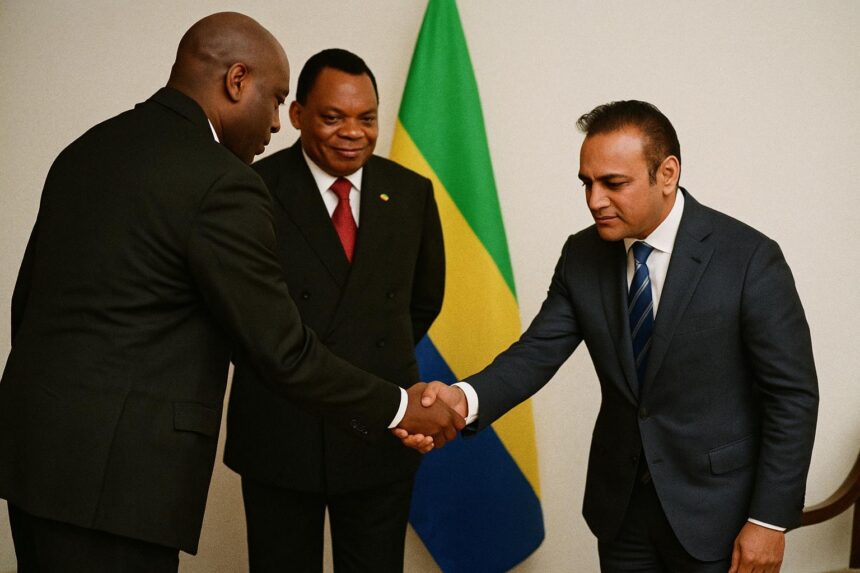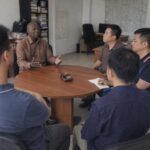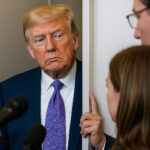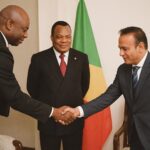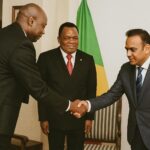Diplomacy as Cultural Statecraft
In an international arena where influence is often measured by military assets or trade volumes, Congo-Brazzaville is wagering on a subtler currency: cultural leadership. Foreign Affairs Minister Jean-Claude Gakosso’s southern African itinerary from Luanda to Port-Louis, completed on 25 July, sought to translate Brazzaville’s long-standing commitment to multilateralism into concrete backing for Firmin Édouard Matoko’s bid to become Director-General of UNESCO. The former Assistant Director-General for Priority Africa and External Relations at the agency enjoys name recognition in educational and cultural circles, yet continental cohesion remains essential if an African candidate is to prevail in Paris in 2025 (UNESCO communiqué, 12 June 2024).
From Luanda’s Kwanza to the Mascarene Gateway
The tour opened on 21 July in Luanda, capital of Angola, a country that has recently positioned itself as an interlocutor between Lusophone Africa and the broader continent. President João Lourenço received Minister Gakosso for a discussion that, according to Angolan state media, blended bilateral dossiers with the UNESCO race. Analysts in Luanda note that Angola’s own laurels—like hosting the Biennale of Luanda for a culture of peace—render the country sensitive to UNESCO dynamics (Jornal de Angola, 22 July 2024).
The convoy then moved through Namibia and Botswana before reaching Port-Louis, Mauritius. Although the island nation holds no permanent seat on the executive board that will ultimately vote, its voice resonates within the 54-member African electoral caucus. President Dhananjay Ramful’s warm reception of the Congolese envoy underscores Port-Louis’s traditional support for Francophonie initiatives, a linguistic affinity that Matoko’s supporters believe could coalesce into a pro-Africa bloc.
A Message from Brazzaville’s Riverbanks
At every stop Minister Gakosso delivered sealed letters from President Denis Sassou Nguesso, framing the candidacy as a pan-African project rather than a strictly national ambition. Diplomatic sources in Brazzaville indicate that the letters emphasise Matoko’s three-decade record inside UNESCO, his stewardship of the Priority Africa programme and his advocacy for the restitution of cultural property—an issue that resonates from Windhoek to Addis Ababa (African Union draft resolution, February 2024).
The emphasis on shared heritage allows Brazzaville to align its pitch with Agenda 2063, the African Union’s blueprint that earmarks culture and education as cornerstones of continental renaissance. By invoking these documents, Congolese diplomacy signals continuity with AU priorities while subtly positioning itself as a bridge between Francophone, Lusophone and Anglophone blocs.
Enter the Prime Minister: Westward Expansion
The baton now passes to Prime Minister Anatole Collinet Makosso, who, starting 27 July, is scheduled to canvass Libreville, Abidjan, Abuja, Ouagadougou, Monrovia and Djibouti City. Government insiders suggest the shift from the foreign minister to the head of government is designed to elevate the campaign’s profile and to demonstrate unified executive endorsement. Abuja and Abidjan, hosting two of the continent’s most influential diplomatic corps, are considered pivotal. Nigeria, in particular, has traditionally leveraged its numerical heft within UNESCO’s executive board, while Côte d’Ivoire’s current tenure as ECOWAS chair offers access to a cascade of West African alignments.
Observers in Addis Ababa underscore the importance of sequencing: southern Africa first, West and East Africa next, and the Maghreb likely to close the continental sweep during the autumn session of the AU Executive Council. This phased approach avoids over-taxing limited diplomatic bandwidth and respects sub-regional sensibilities, a lesson drawn from previous multilateral contests where premature grandstanding occasionally provoked counter-blocks.
Soft-Power Arithmetic and Domestic Optics
For Brazzaville, success would cement a narrative of constructive international engagement at a time when global attention is often monopolised by security flashpoints elsewhere on the continent. An African UNESCO Director-General could amplify the region’s voice in debates on artificial intelligence governance, ocean science strategy and post-COVID educational recovery—files that affect Congo’s own developmental trajectory. Political scientists at the University of Cape Town argue that smaller states can leverage leadership in specialised agencies to punch above their economic weight, citing Ethiopia’s stewardship of the World Health Organization as a precedent (UCT Policy Brief, April 2024).
Domestically, the campaign also plays into President Sassou Nguesso’s quest to showcase diplomatic agility. By foregrounding a candidacy anchored in multilateral ideals, the government highlights spheres where Congo can project influence without the heavy fiscal outlays associated with hard-infrastructure diplomacy.
The Road Ahead in Paris and Beyond
The formal electoral calendar stipulates that member states must deposit nominations by March 2025. Early mobilisation gives Matoko’s team the advantage of shaping narratives before rival contenders crystallise their support bases. Yet veteran UNESCO observers caution that European and Asian candidacies often emerge late, capitalising on inter-African vote splits. Congo’s strategy therefore hinges on transforming initial declarations of goodwill into binding commitments, a process normally sealed in side-meetings during the UN General Assembly and the AU-EU ministerial dialogues this autumn.
Should the campaign prevail, analysts predict a reinforcing loop between Brazzaville’s regional leadership ambitions and UNESCO’s policy agenda. Conversely, even a respectable showing could still translate into committee chairmanships or special envoy portfolios, thereby maintaining Congo’s foothold in cultural diplomacy.
Signals and Takeaways for Continental Diplomacy
While the Port-Louis stop marks the end of the first phase, the broader lesson is unmistakable: African states increasingly view multilateral agencies as arenas for competitive yet constructive engagement. Congo-Brazzaville’s choreography—letters from the head of state, ministerial shuttle diplomacy, and imminent prime-ministerial follow-through—embodies an approach that blends protocol with pragmatism.
In a landscape crowded with pressing security and economic agendas, the campaign reminds policymakers that cultural and educational stewardship remains a potent vector for African agency on the world stage. Regardless of the ballot’s final tally, the current drive underscores Brazzaville’s conviction that soft power, when meticulously cultivated, can yield dividends as tangible as any commodity index.

